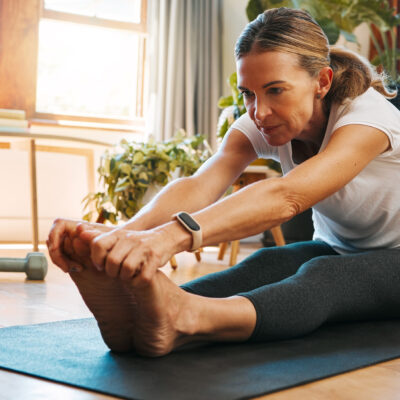Sarah Maxwell looks into forming healthy sleep habits
As someone who’s always been a night owl, I’ve had my fair share of battles with my sleep schedule. I’ve tried everything from sleep tracking to hypnosis. Some have worked for a short time, and some have not. Each of us has unique needs and challenges. It’s not just about the number of hours we sleep, but also the quality. Hormonal balance, tissue repair, emotional regulation and much more are all affected by our sleep quality.
The amount of sleep we need varies from person to person and changes over time. For example, night shift workers can’t sleep according to night and day. New mothers struggle to get restorative sleep, as well as those with illness, stress and changing circumstances. So, understanding that sleep is a flexible process, not bound by strict standards like the eight-hour rule, can help alleviate the stress of conforming to an unattainable standard.
So whether you’re a ‘lark’ or a ‘night owl’, the latest research is an eye opener.
Here’s a snapshot of the latest sleep research findings:
- Types of Exercise – Aerobic exercises like swimming and cycling generally improve sleep quality. In contrast, anaerobic and stretching exercises have mixed effects. The best time to exercise is in the early evening, but avoid intense workouts close to bedtime.
- Benefits of Exercise –Regular exercise helps us maintain a healthy weight, reduces the risk of chronic diseases, improves our cardiovascular health, and boosts our mood by lowering cortisol levels and increasing melatonin.
- Improving Sleep – Exercising 4-8 hours before bedtime can enhance sleep efficiency and reduce wakefulness. Regular physical activity helps stabilise sleep-wake cycles and regulate circadian rhythms.
- Treating Sleep Disorders – Exercise benefits people with insomnia, restless leg syndrome, and sleep apnea. Moderate-intensity aerobic exercise can improve sleep onset and quality while alleviating sleep apnoea symptoms and RLS.
You can read the full research article here: https://pmc.ncbi.nlm.nih.gov/articles/PMC8889952/
And here’s what you can do to improve your sleep routine:
- Bedtime Plan – Create a consistent bedtime routine and aim to go to bed and wake up simultaneously every day, even on weekends, to regulate your body’s internal clock. Have a warm bath, read or practice relaxation techniques to signal to your body that it’s time to wind down.
- Sleep Environment – Make sure your bedroom is calm, dark and quiet. Black-out curtains, earplugs or white noise sounds help to create an atmosphere conducive to sleep.
- Reduce exposure to screens at least an hour before sleep – The blue light emitted can interfere with melatonin production and disrupt sleep.
- Nutrition and hydration – Avoid large meals, caffeine and alcohol close to bedtime as they can reduce sleep quality; opt for light snacks if needed. And, if drinking water too close to bedtime renders you consistently running to the loo during sleeping hours, take in the bulk of your hydration during the day.
It’s now 11.30pm, and I’m off to bed.
Sleep well! Sarah x
Sarah Maxwell is a multi-award winning Lifestyle Wellbeing and Fitness coach. You can find her at sarahmaxwell.com
Get in touch via email at sarahmaxwell@mail.com
and on social
@sarahmaxlife
You may also like
Is Your Relationship Suffering from Seasonal Fatigue?
Breakup & Divorce Coach Katie Woods shares her top tips on how to reset The festive season often encourages couples to “hold it all together” until January, setting disagreements aside in favour of cheerful gatherings and familiar family routines. But...
Strength from within
Sarah Maxwell explores bone density as she chats to OsteoStrong’s Ryan Ashford-Smit In the UK, approximately 22% of women and 7% of men over 50 have osteoporosis. Women are at far greater risk, as menopause causes a rapid drop in...
Small changes big results
Nutrition & Lifestyle Coach Charlotte Lauexplores the benefits of setting one achievable goal January is often seen as a fresh start… but it can also bring a lot of pressure! New Year diets, gruelling fitness regimes and detoxes might feel...












